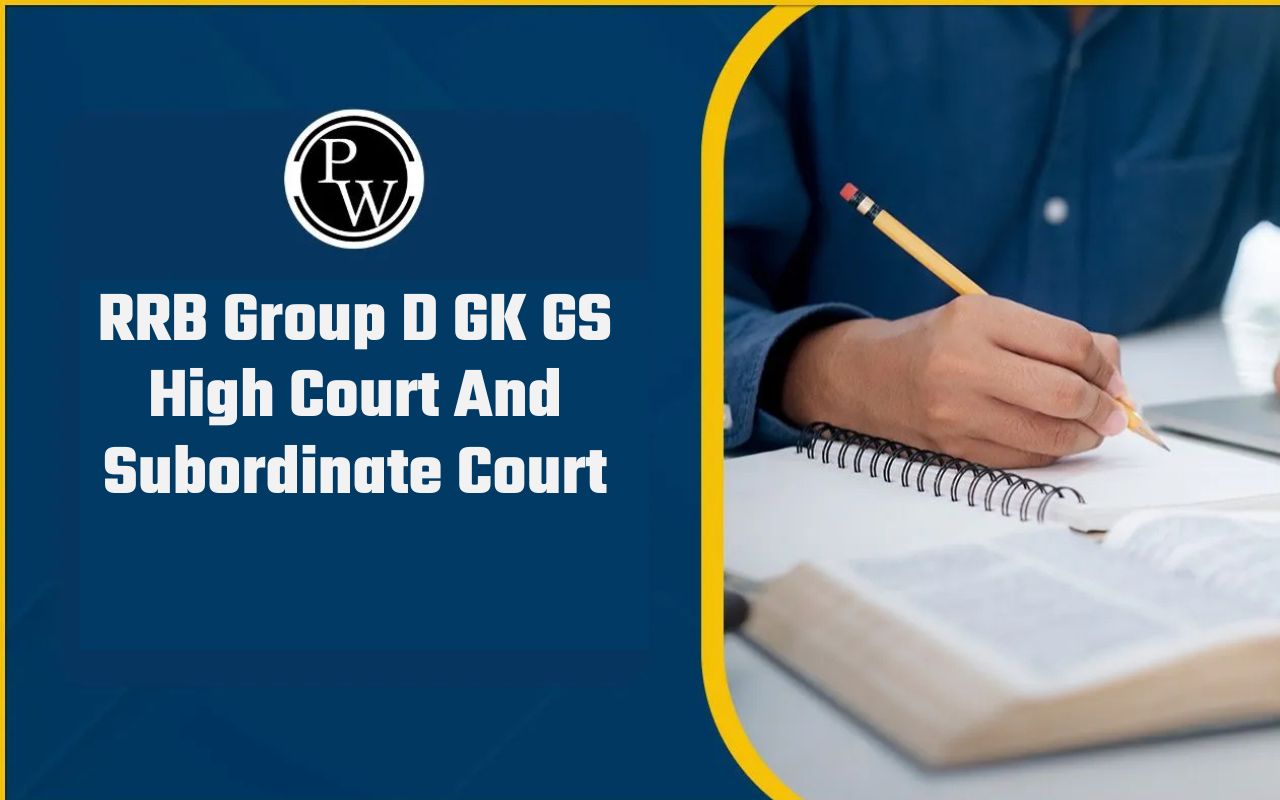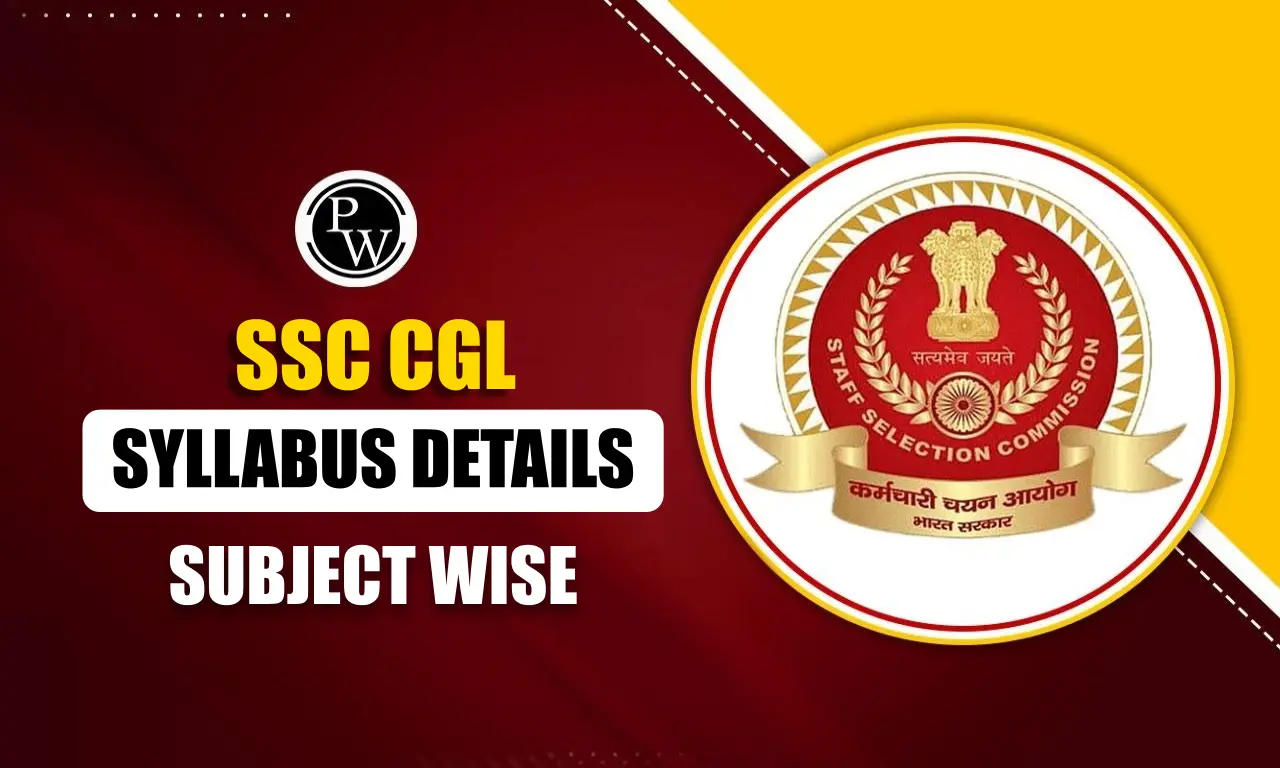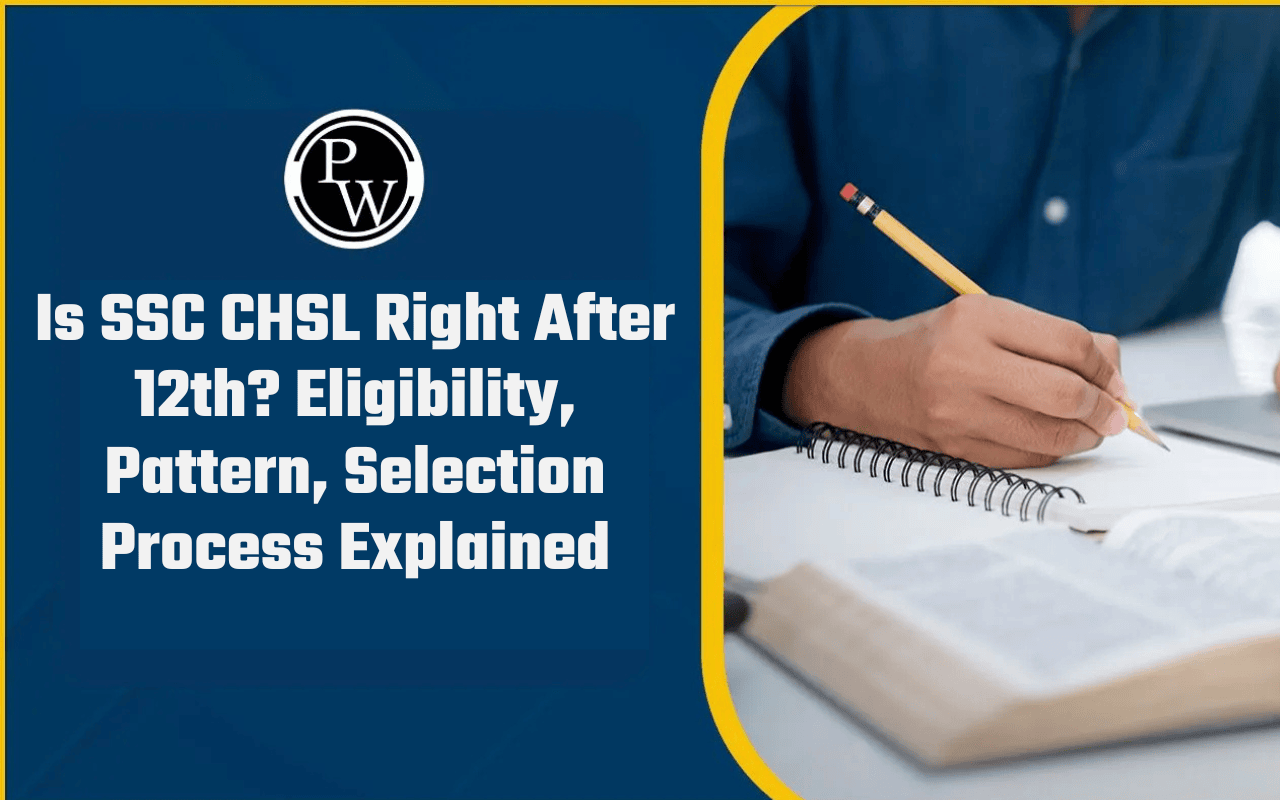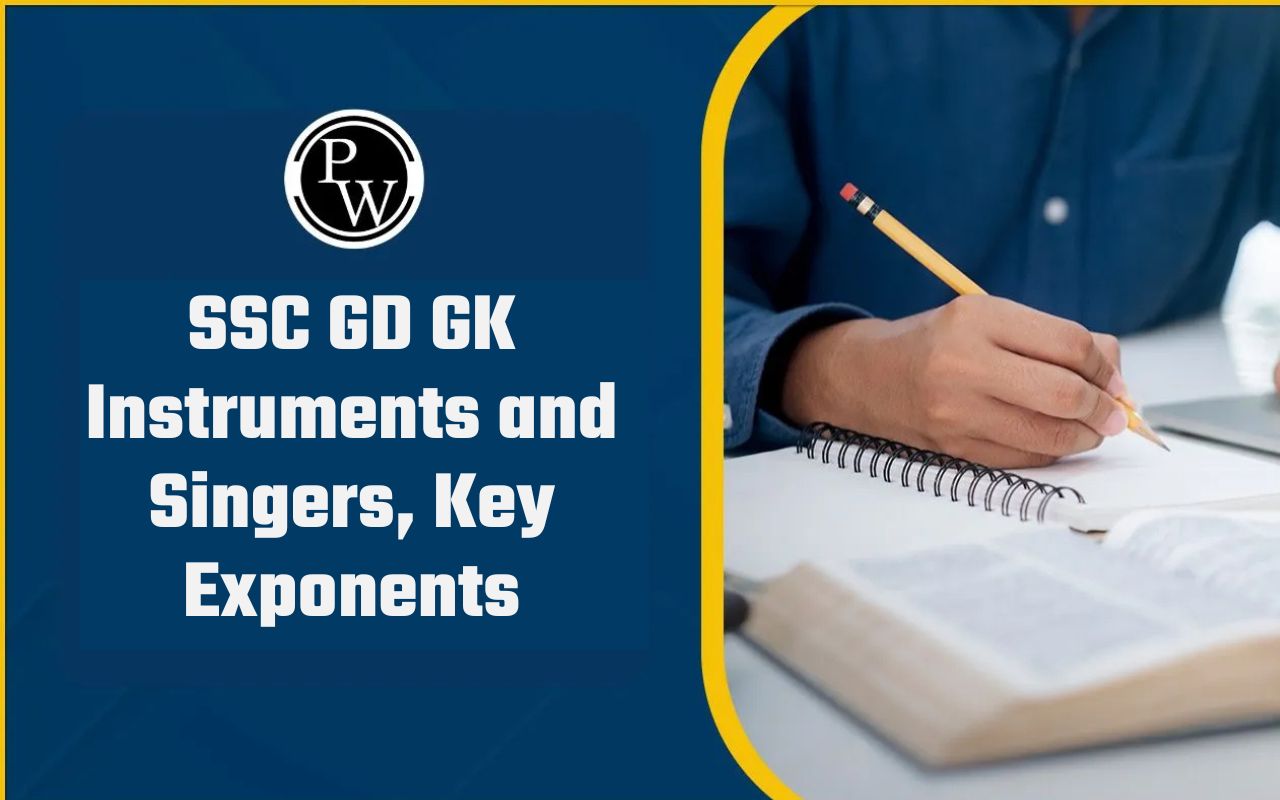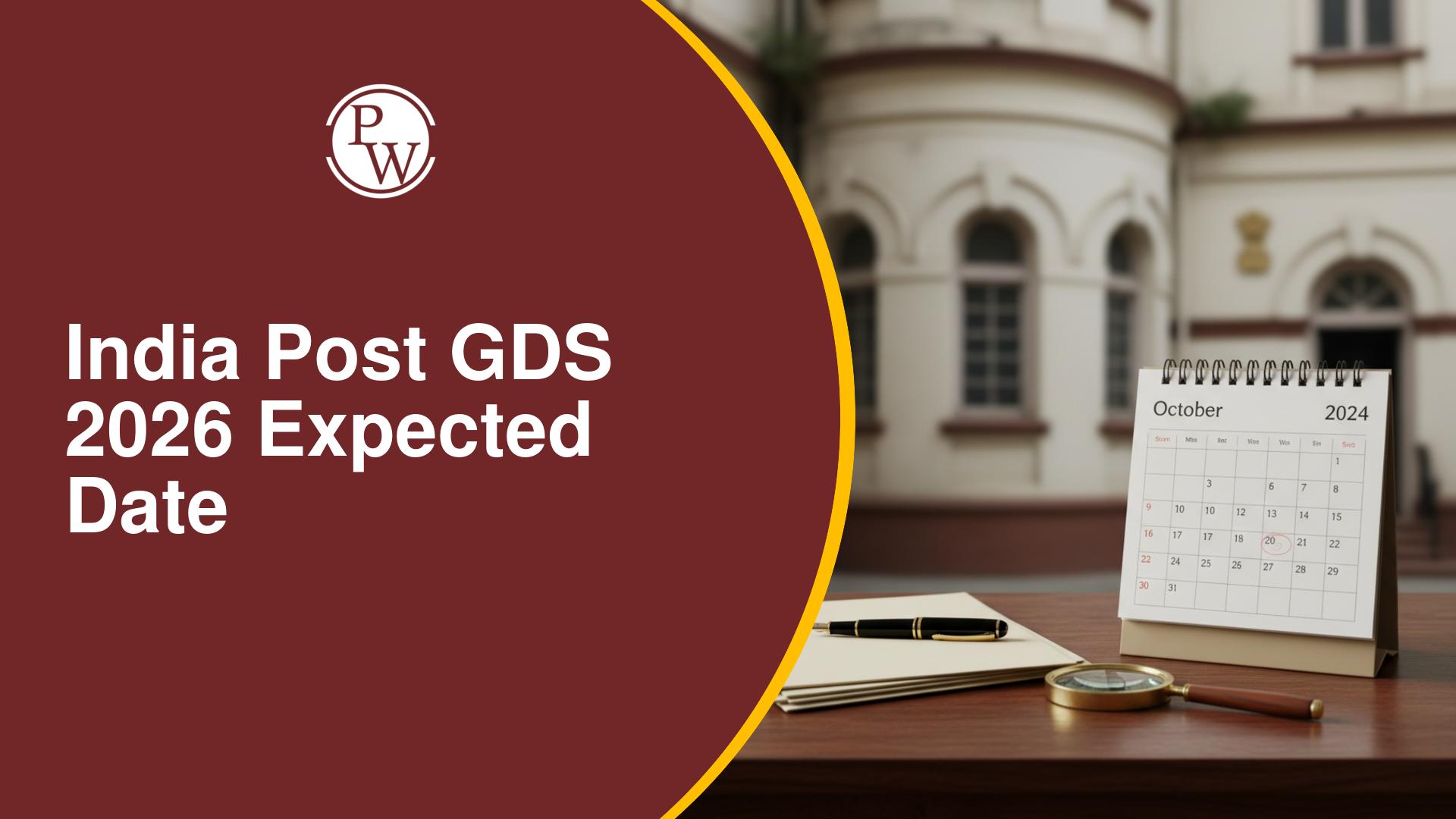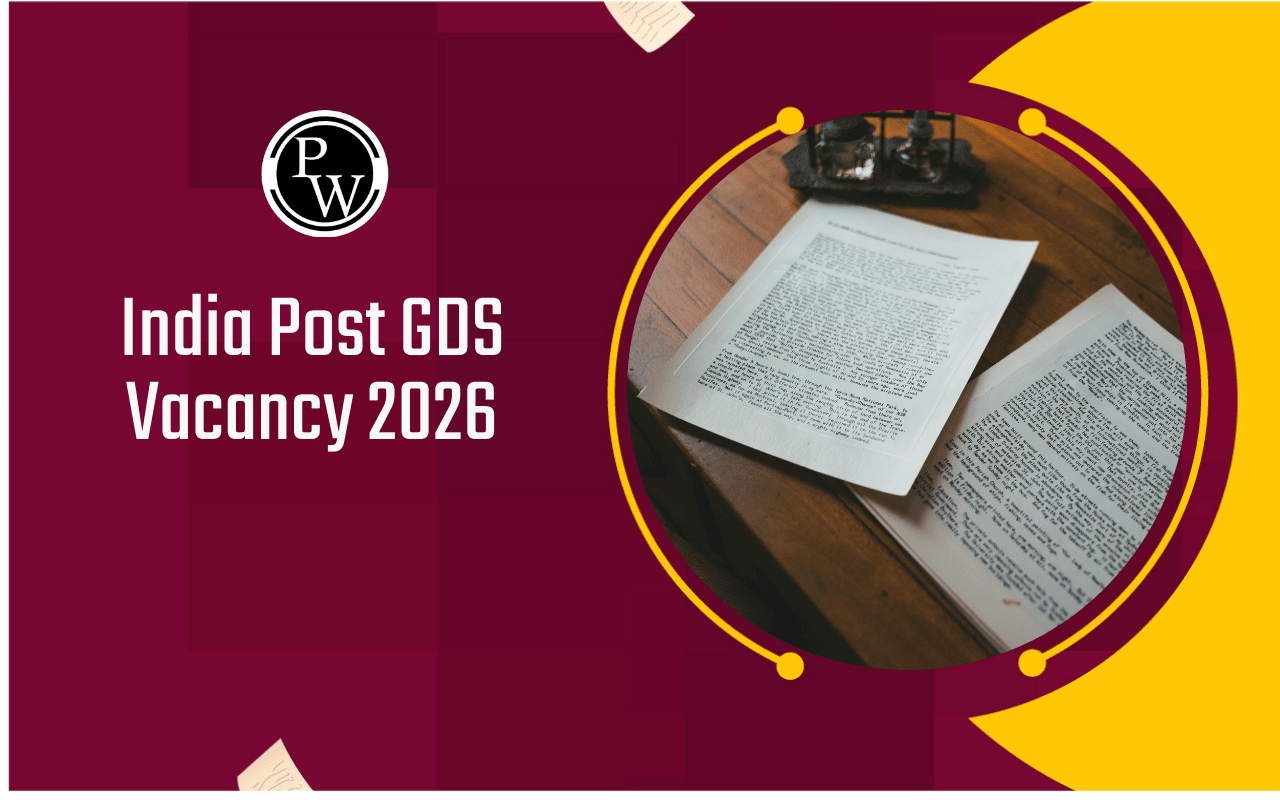
Top 10 Quantitative Aptitude Topics for SSC Exams: Quantitative aptitude is a critical component of various SSC exams, comprising various mathematical concepts and problem-solving skills. Mastering these topics is essential for achieving a competitive edge in exams like SSC CHSL, SSC CGL, SSC CPO, and SSC MTS.
Check Top 10 Quantitative Aptitude Topics for SSC Exams in this article.Top 10 Quantitative Aptitude Topics for SSC Exams
Quantitative aptitude is a crucial component of the SSC exams, including SSC CHSL , SSC CGL , SSC CPO , and SSC MTS . Mastering the key topics can significantly enhance your chances of scoring well.Top 10 Quantitative Aptitude Topics for SSC Exams - Number System
The number system is fundamental to quantitative aptitude, covering a broad spectrum of numerical categories and their properties.- Natural Numbers : Counting numbers starting from 1.
- Whole Numbers : Natural numbers including zero.
- Integers : Positive and negative whole numbers including zero.
- Rational and Irrational Numbers : Rational numbers can be expressed as fractions, while irrational numbers cannot.
- Prime Numbers : Numbers greater than 1 with only two factors, 1 and the number itself.
- Divisibility Rules : Rules to determine if a number is divisible by another without performing the actual division.
Top 10 Quantitative Aptitude Topics for SSC Exams - Simplification
Simplification involves the process of solving complex mathematical expressions to their simplest forms using fundamental arithmetic operations.- BODMAS/BIDMAS Rule guides the sequence of operations: Brackets (parentheses), Orders (exponents and roots), Division, Multiplication, Addition, and Subtraction.
- Fractions and Decimals involves converting fractions to decimals and vice versa, adding, subtracting, multiplying, and dividing fractions.
- Percentage Calculations is crucial for applications in profit and loss, simple interest, compound interest, discounts, etc.
Top 10 Quantitative Aptitude Topics for SSC Exams - Algebra
Algebra deals with symbols and the rules for manipulating those symbols to solve problems.- Basic Algebraic Identities : Formulas like (a+b)² = a² + 2ab + b².
- Linear Equations : Equations involving one or two variables.
- Quadratic Equations : Equations of the form ax² + bx + c = 0.
- Polynomials : Expressions involving variables raised to positive integer powers.
Top 10 Quantitative Aptitude Topics for SSC Exams - Arithmetic
Arithmetic is the foundation of quantitative aptitude, covering basic operations and their applications- Average : Sum of quantities divided by the number of quantities.
- Ratio and Proportion : Relationship between two quantities and their comparison.
- Mixture and Alligation : Problems involving mixing of two or more entities.
- Profit and Loss : Calculations involving cost price, selling price, profit, and loss.
- Simple and Compound Interest : Interest calculations on principal over time
Top 10 Quantitative Aptitude Topics for SSC Exams - Data Interpretation
Data Interpretation involves analyzing and drawing conclusions from data presented in various formats like tables, bar graphs, line graphs, and pie charts. Tables present data in rows and columns, requiring interpretation of values and trends. Bar Graphs represent data using bars of different heights, while Line Graphs connect data points to show trends over time or other variables. Pie Charts divide data into sectors, each representing a proportion of the whole, facilitating comparison of different components.Top 10 Quantitative Aptitude Topics for SSC Exams - Geometry
Geometry deals with the properties and relations of points, lines, surfaces, and solids. It includes understanding Basic Geometrical Shapes such as triangles, circles, squares, rectangles, and polygons, and their respective properties like angles, sides, and area. Knowledge of Angles involves understanding types of angles (acute, obtuse, right) and their measurements. Congruence and Similarity criteria help determine when two shapes are identical in shape and size (congruence) or when they have proportional similarity. Pythagoras Theorem is essential for calculating the sides of a right-angled triangle, while Coordinate Geometry involves plotting points on a coordinate plane, finding distances between points, slopes of lines, and equations of lines.Top 10 Quantitative Aptitude Topics for SSC Exams - Mensuration
Mensuration deals with the measurement of geometric figures and their properties. It includes calculating Area and Perimeter for various shapes like rectangles, triangles, circles, and polygons. Surface Area refers to the total area covering the surface of a 3D figure, while Volume measures the space occupied by a 3D figure. Mastery of these calculations is crucial for solving problems involving real-world objects and their dimensions.Top 10 Quantitative Aptitude Topics for SSC Exams - Trigonometry
Trigonometry deals with the study of relationships between the angles and sides of triangles. It involves understanding Trigonometric Ratios such as Sine, Cosine, Tangent, and their reciprocals (Cosecant, Secant, Cotangent). Trigonometric Identities like sin²θ + cos²θ = 1 are fundamental for simplifying trigonometric expressions and equations. Applications include solving Heights and Distances problems involving angles of elevation and depression, useful in navigation, architecture, and physics.Top 10 Quantitative Aptitude Topics for SSC Exams - Time, Speed, and Distance
This topic involves problems related to motion and travel. It includes understanding the relationship between Speed, Distance, and Time , and using formulas to calculate one when others are known. Relative Speed is crucial for solving problems involving objects moving towards or away from each other at different speeds. Average Speed calculations help determine the overall speed covering different segments of a journey, essential for planning travel routes and logistics.Study Tips for Quantitative Aptitude Topics for SSC Exams 2024
- Understand the Basics : Build a strong foundation by mastering basic concepts and principles.
- Practice Regularly : Solve a variety of problems to gain confidence and improve speed.
- Use Shortcuts and Tricks : Learn and apply mathematical shortcuts and techniques to solve problems quickly.
- Mock Tests and Previous Papers : Practice with mock tests and solve previous years' question papers to familiarize yourself with the exam pattern and types of questions.
- Analyze Your Performance : Identify weak areas and focus on improving them through targeted practice.
- Time Management : Practice managing your time effectively during the exam to maximize your score.
Top 10 Quantitative Aptitude Topics for SSC Exams FAQs
1. What is the importance of the number system in SSC exams?
The number system forms the foundation for understanding all other mathematical concepts, including natural numbers, integers, primes, and rational and irrational numbers.
2. How can simplification help in SSC exams?
Simplification techniques, including BODMAS/BIDMAS rules and percentage calculations, help solve complex mathematical expressions quickly and accurately, saving time during exams.
3. Why is data interpretation crucial for SSC exams?
Data interpretation tests your ability to analyze and draw conclusions from data presented in tables, graphs, and charts, which is essential for decision-making in real-world scenarios.
🔥 Trending Blogs
Talk to a counsellorHave doubts? Our support team will be happy to assist you!

Check out these Related Articles
Free Learning Resources
PW Books
Notes (Class 10-12)
PW Study Materials
Notes (Class 6-9)
Ncert Solutions
Govt Exams
Class 6th to 12th Online Courses
Govt Job Exams Courses
UPSC Coaching
Defence Exam Coaching
Gate Exam Coaching
Other Exams
Know about Physics Wallah
Physics Wallah is an Indian edtech platform that provides accessible & comprehensive learning experiences to students from Class 6th to postgraduate level. We also provide extensive NCERT solutions, sample paper, NEET, JEE Mains, BITSAT previous year papers & more such resources to students. Physics Wallah also caters to over 3.5 million registered students and over 78 lakh+ Youtube subscribers with 4.8 rating on its app.
We Stand Out because
We provide students with intensive courses with India’s qualified & experienced faculties & mentors. PW strives to make the learning experience comprehensive and accessible for students of all sections of society. We believe in empowering every single student who couldn't dream of a good career in engineering and medical field earlier.
Our Key Focus Areas
Physics Wallah's main focus is to make the learning experience as economical as possible for all students. With our affordable courses like Lakshya, Udaan and Arjuna and many others, we have been able to provide a platform for lakhs of aspirants. From providing Chemistry, Maths, Physics formula to giving e-books of eminent authors like RD Sharma, RS Aggarwal and Lakhmir Singh, PW focuses on every single student's need for preparation.
What Makes Us Different
Physics Wallah strives to develop a comprehensive pedagogical structure for students, where they get a state-of-the-art learning experience with study material and resources. Apart from catering students preparing for JEE Mains and NEET, PW also provides study material for each state board like Uttar Pradesh, Bihar, and others
Copyright © 2026 Physicswallah Limited All rights reserved.


